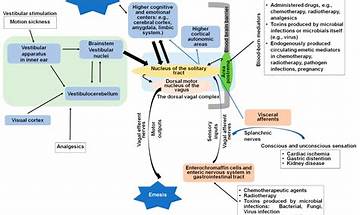Researcher Yang Xianwen from the Third Institute of Oceanography of the Ministry of Natural Resources: Marine microorganisms are important resources for innovative drug research.

Yang Xianwen, researcher, Institute of Oceanography, Ministry of Natural Resources.
On August 4, 2023, the 2023 symposium on the high-quality development of national medicine for green and natural products chemistry service was held in Guiyang. At the meeting, Yang Xianwen, a researcher at the Third Institute of Oceanography of the Ministry of Natural Resources, shared the research results of the research group in recent years with the topic of "Discovery and Application of Active Secondary Metabolites of Marine Microbes".
Yang Xianwen said that natural compounds are an important source of innovative drug research. From 1981 to 2019, more than 1,800 kinds of drugs were used clinically, of which more than 60% were from natural compounds or their derivatives. Many natural drugs or natural compounds are actually produced by the interaction between microorganisms or microbial hosts.
The ocean occupies 70% of the earth's surface area. In addition to seawater, there are animals, plants and sediments in the ocean, and the biodiversity is extremely rich. Especially in hydrothermal and cold spring areas, microorganisms symbiotic with hooked shrimp, anemones, sea cucumbers and mussels are more abundant. Deep-sea areas with extreme special environmental conditions such as high salt, high pressure, low temperature and darkness also determine the diversity of organisms and compounds.
"There are more than 1.5 million kinds of microorganisms discovered by humans, and more than 95% of them exist in the ocean. Marine microorganisms are a rich source of novel structural compounds and active compounds, and the real producers of marine active compounds are microorganisms symbiotic with the host. " Yang Xianwen said.
How to make use of abundant marine microbial resources? Yang Xianwen said that the study of secondary metabolism of deep-sea microorganisms is facing great challenges in collection and culture, and it needs special scientific research vessels and sampling devices, which needs national strength as support. Because of this, the number of new metered products obtained by human beings from deep-sea microorganisms is very small.
Yang Xianwen introduced that the China Marine Microbial Strain Preservation Management Center (MCCC), built by the Third Institute of Oceanography of the Ministry of Natural Resources, is the first standardized, standardized and highly information-based marine microbial strain resource sharing platform in China and the largest deep-sea microbial strain bank in the world, with a total of more than 25,000 strains.
Up to now, China Marine Microbial Strain Preservation Management Center has completed the small-scale fermentation culture of more than 1,000 marine microorganisms and obtained more than 10,000 extracts.
At the forum, Yang Xianwen introduced aphidicolin as an example. Aphidicolin was first discovered in 1972. In the 1990s, the compound was clinically tested in the European Union. Although it failed due to solubility problems, it has been a hot research topic. Up to now, more than 300 derivatives have been publicly reported, and less than 30 are from natural sources. At present, China Marine Microbial Strain Preservation Management Center has obtained 87 derivatives from this deep-sea fungus, 79 of which are new compounds, which greatly highlights the unique charm of deep-sea microorganisms in secondary metabolites.
"Our research group has completed the research on more than 50 strains of microorganisms and obtained more than 1,500 marine natural compounds, including more than 400 new compounds and more than 300 new compounds in the deep sea (below 1,000 meters)." Yang Xianwen said that active compounds such as anti-tumor, anti-virus and anti-allergy will provide corresponding support for drug research.
Source: Guizhou Daily Eye Journalist Pan Xiaofei Intern Xu Beibei. Please indicate the source of information and the arrangement of marine knowledge circle.
Declaration: All article resources on this website, unless otherwise specified or labeled, are collected from online resources. If the content on this website infringes on the legitimate rights and interests of the original author, you can contact this website to delete it.






